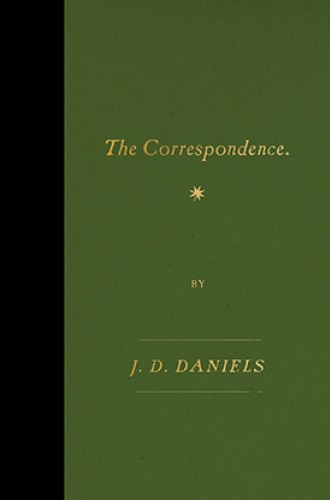A writer’s careful, surprising attention
J. D. Daniels writes beautiful letters to no one. They aren't for everyone.
He that refraineth his lips is wise, says the proverb. Or as J. D. Daniels’s father used to warn, “Don’t tell them everything you know, Johnny. You aren’t going to like how little time it takes you.”
This collection of six mostly nonfiction “letters” published first in the Paris Review reveals a writer devoted to narrative economy, the kind of artful compression reminiscent of Denis Johnson’s stories in Jesus’ Son or Sarah Manguso’s argument-aphorisms. With Daniels, certain ambiguities and elisions—“my wife became, as the years passed, my ex-wife”—are the result not of carelessness or haste but of a virtuosic restraint. Daniels sculpts prose like Michelangelo summoning David from the marble block. Some passages are so finely hewn that the reader wants to stop and study them.
The recipient of a 2016 Whiting Award for emerging writers, Daniels grew up Southern Baptist and working class in and around Louisville, Kentucky. His mother was an English teacher, his father a “genius storyteller” and “cornpone hard-ass.” During stints as a college dropout, Daniels worked as an exterminator, a janitor, and a factory assembly line hand. Later he moved east, taking a master’s in creative writing from Boston University and writing handbooks for Harvard’s molecular biology department.






